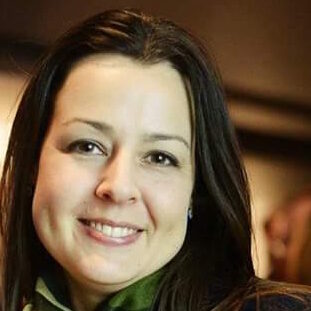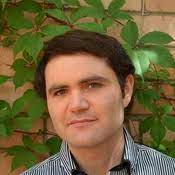Ethics in Management: Business and the Professions
An online conference hosted by the School of Management and Marketing, Curtin University
Conference Theme
Management and leadership roles in business and the professions entail a wide range of ethical issues and challenges. These are apparent to anyone occupying such roles, aspiring to them, or subject to decisions by managers and leaders. Their effects on our daily lives are unavoidable and wide-ranging, never more so than in times of flux and crisis. In addition to ethical challenges particular to management and leadership roles, there are many more general questions, such as:
- Are management and leadership ethically special in some way?
- Is ethics for leaders and managers the same as for other people?
- Does being a manager or leader present ethical challenges that are different in kind from other aspects of daily life, or are the impacts of leaders’ and managers’ decisions simply greater?
- Are such challenges analogous to the ethical issues and questions faced in the professions generally?
- What do we have a right to expect of leaders and managers regarding ethics?
Conference presentations
Follow the link below to view the conference presentations in Microsoft Teams.
Learn more about the Australian Association for Professional & Applied Ethics (AAPAE)
Keynote speakers

Keynote speaker: The ethics of the COVID‐19 public health response–lockdowns, mask man‐ dates, vaccine requirements and other public health and social measures
Dr Andrew (Andy) Robertson is the Chief Health Officer and Assistant Director General in the Public and Aboriginal Health Division of the Western Australia Department of Health.
With specialist qualifications in Public Health Medicine and Medical Administration, he served with the Royal Australian Navy (RAN) from 1984 until 2003, including completing three tours to Iraq as a Biological Weapons Chief Inspector with the United Nations Special Commission in 1996 and 1997. He remains in the RAN’s Active Reserve and was promoted to Commodore undertaking the role of Director General Navy Health Reserves from July 2015 until December 2019.
In October 2003, he took up the position of the Director, Disaster Preparedness and Management in WA Health. In December 2004, he led the Australian Medical Relief team into the Maldives post tsunami, managed WA Health’s response to the 2005 Bali Bombing, led the WA Health team into Indonesia after the Yogyakarta earthquakes in June 2006, worked as the Radiation Health Adviser to the Australian Embassy after the Fukushima nuclear incident in 2011 and conducted the AUSMAT needs assessment in Nepal after the Nepal earthquake in 2015. Since 2008, as Director, Disaster Management and Deputy Chief Health Officer, he has coordinated the WA Health disaster and public health responses to the Ashmore Reef incident, the H1N1 2009 pandemic, the 2011 CHOGM meeting and the 2015 Ebola preparations, and acted as the Chief Information Officer and the Chief Medical Officer. He has been undertaking the current role since June 2018, including leading the WA Health response to the COVID-19 outbreak.

Keynote speaker: Ethics in management and business: What future for stakeholder theory
Michelle Greenwood is a Professor in the Department of Management at Monash University. Her research area, broadly speaking, is critical business ethics. In this context she has developed critical and ethical approaches to a number of distinct areas: ethics and HRM (critiquing ideology and consensus in HRM); stakeholder theory (developing critical and relational understandings of stakeholder theory); CSR (developing political approaches to nexus of CSR and employment); and corporate accountability (analysing CSR reporting and visual rhetoric in corporate reports). She also has an ongoing interest in publication ethics. Currently Michelle is co-guest editing special issues on “Work and Freedom in the 21st Century” at Human Relations and “Intimate Partner Violence and Business” at Journal of Business Ethics. She has held editorial positions at Journal of Business Ethics, Business and Society and Business Ethics Quarterly and serves as coeditor-in-chief for Journal of Business Ethics.


Conference organisers

Dr Jacqueline Boaks has a background in management, training, consultancy and academia. She is passionate about sharing her knowledge on ethics, leadership and critical thinking and has taught at tertiary level for more than a decade. She is the co-editor of Leadership and Ethics and has published widely on democracy, ethics and leadership.
She currently teaches in the areas of business ethics, and leadership ethics at Curtin University.

Dr Adam Andreotta is a lecturer for the Curtin core unit Strategic Career Design. His main research topic is the philosophy of self-knowledge—currently a major topic in the intersection of epistemology and the philosophy of mind. He has also written about the philosophy of artificial intelligence, specifically on the Ethics of Big Data and AI Rights; and the history of philosophy, with a keen interest in David Hume.

Dr Michael Baldwin has extensive experience in the public and private sectors, in areas including procurement, contracts and oversight of large-scale government projects. Since 2018 he has taught ethics to MBA and undergraduate business students, as well as classes on career planning and lifetime career management. He is currently researching the links between happiness, lifetime well-being and material wealth.

Dr Clifford Stagoll holds two PhDs in philosophy, the first from University of Warwick (where he was a Commonwealth Scholar) on the philosophy of Gilles Deleuze, and the second from the University of Western Australia, on William James’s therapeutic ethical pragmatism. His other qualifications in philosophy include an MA from Texas A&M University and a BA from Deakin University. His academic interests centre on so-called ‘Golden Age’ American Pragmatism, in particular the application of pragmatist principles to ‘real world’ contemporary issues in management, self-development, and education. He has co-edited (with Professor Michael P. Levine) a volume applying James’s theories to issues of contemporary import, published in 2019 by SUNY Press, and is completing for publication a book on James’s ethics of self-development.








